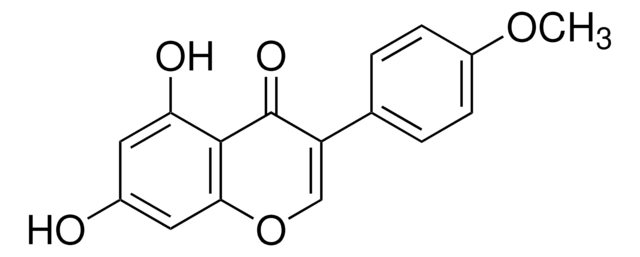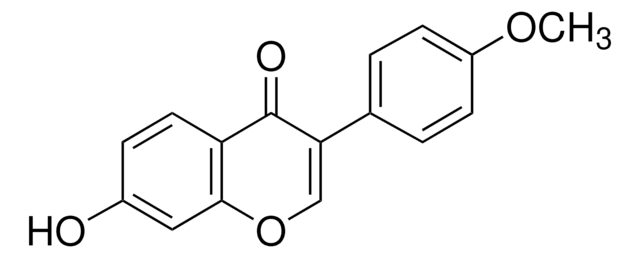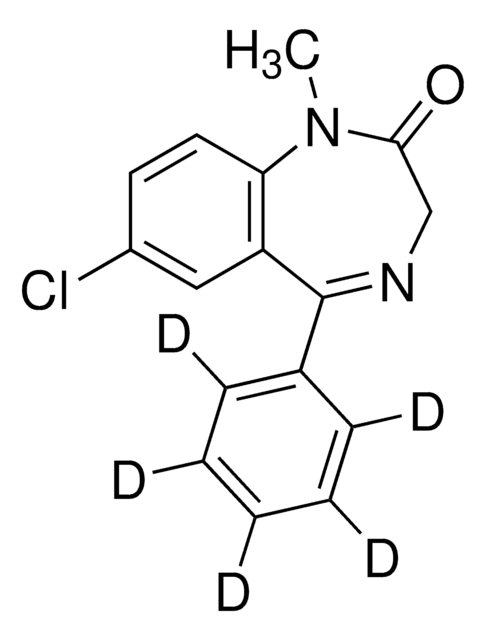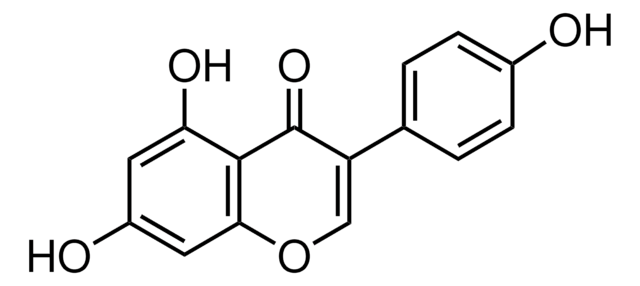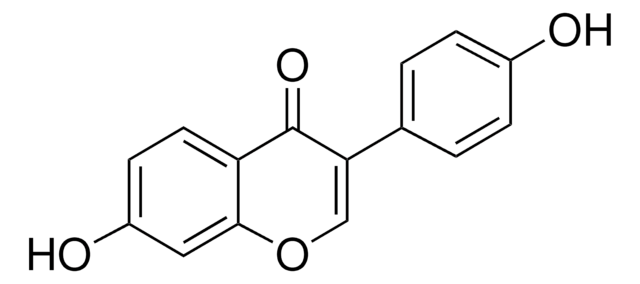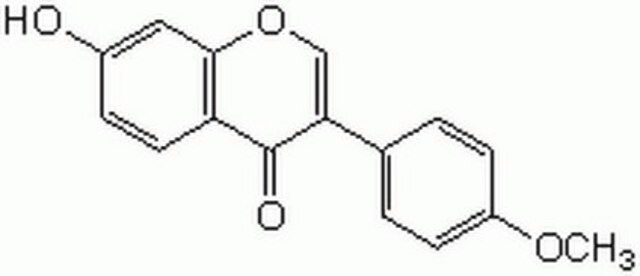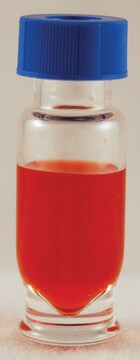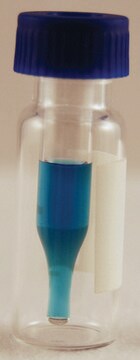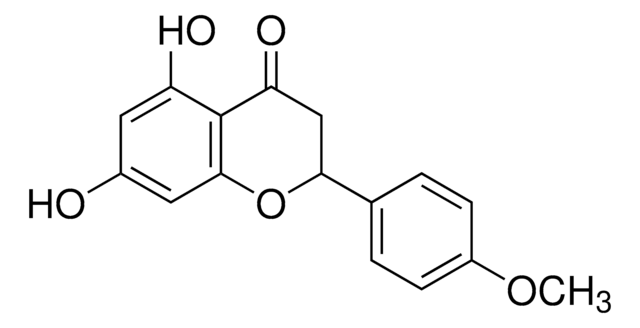D2016
Biochanin A
Sinónimos:
4′-Methylgenistein, 5,7-Dihydroxy-4′-methoxyisoflavone, Genistein 4′-methyl ether, Olmelin
About This Item
Productos recomendados
Formulario
powder
mp
210-213 °C (lit.)
cadena SMILES
COc1ccc(cc1)C2=COc3cc(O)cc(O)c3C2=O
InChI
1S/C16H12O5/c1-20-11-4-2-9(3-5-11)12-8-21-14-7-10(17)6-13(18)15(14)16(12)19/h2-8,17-18H,1H3
Clave InChI
WUADCCWRTIWANL-UHFFFAOYSA-N
Información sobre el gen
human ... CYP19A1(1588)
mouse ... Aldh1a2(19378) , Maoa(17161)
¿Está buscando productos similares? Visita Guía de comparación de productos
Descripción general
Aplicación
Acciones bioquímicas o fisiológicas
Código de clase de almacenamiento
11 - Combustible Solids
Clase de riesgo para el agua (WGK)
WGK 3
Punto de inflamabilidad (°F)
Not applicable
Punto de inflamabilidad (°C)
Not applicable
Equipo de protección personal
Eyeshields, Gloves, type N95 (US)
Elija entre una de las versiones más recientes:
¿Ya tiene este producto?
Encuentre la documentación para los productos que ha comprado recientemente en la Biblioteca de documentos.
Los clientes también vieron
Artículos
Antioxidants protect biological systems from oxidative damage produced by oxygen-containing free radicals and from redoxactive transition metal ions such as iron, copper, and cadmium.
Nuestro equipo de científicos tiene experiencia en todas las áreas de investigación: Ciencias de la vida, Ciencia de los materiales, Síntesis química, Cromatografía, Analítica y muchas otras.
Póngase en contacto con el Servicio técnico